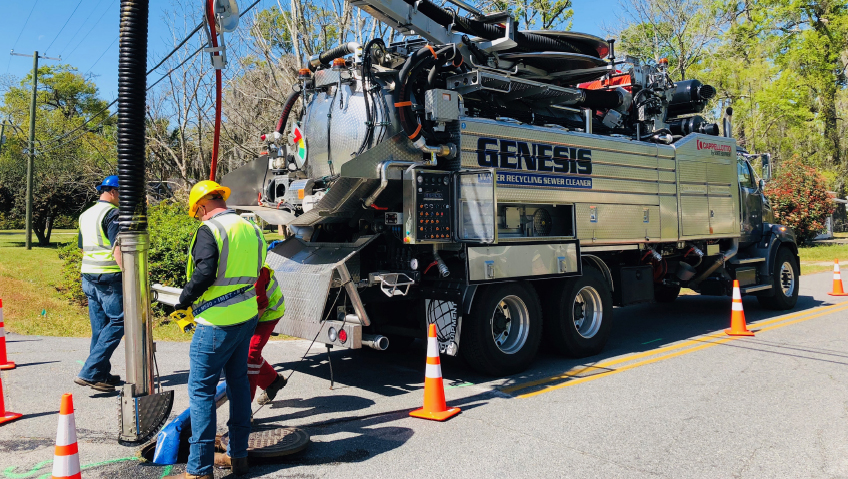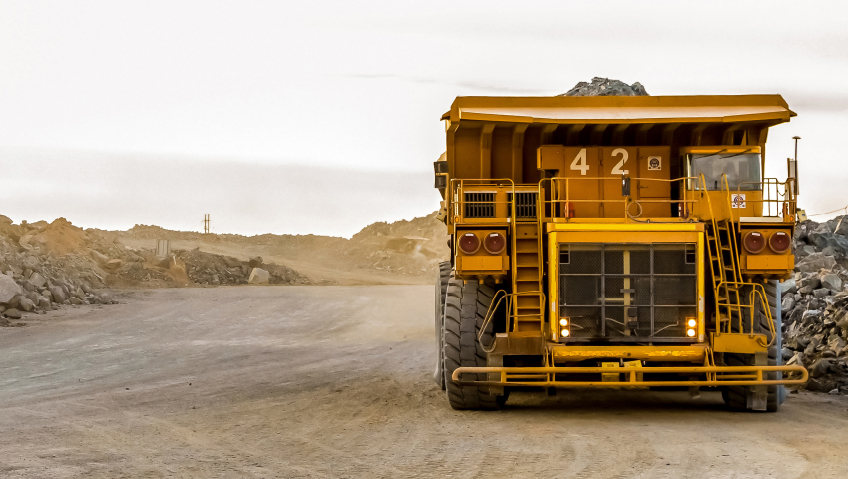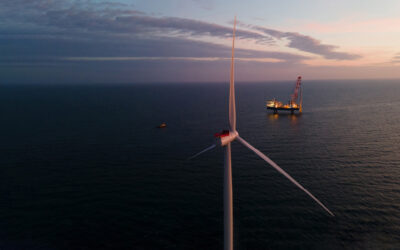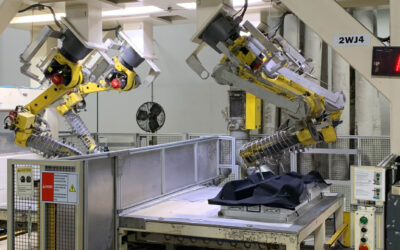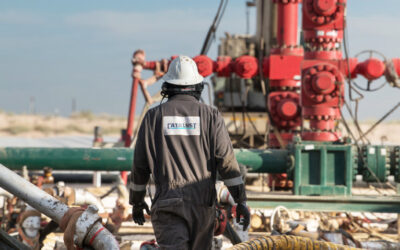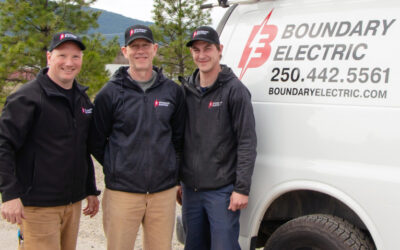Sewer Equipment, a Dixon, Illinois-based manufacturer of sewer cleaning and vacuum excavation gear, just passed a huge corporate milestone. The family-owned firm celebrated its eightieth anniversary last year and continues to develop new products and set new goals.
Sewer Equipment designs and manufactures high-pressure truck and trailer-mounted sewer jetters, water recycling sewer cleaners, industrial vacuum trucks, catch basin cleaners, hydro excavator trucks, and air excavators. The company offers equipment rentals and sales.
Its longevity is not based on flashy marketing or a complicated business strategy. “It may seem a bit cliché, but the ‘secret sauce’ is taking care of the customers. Everybody says that but doing it is miles apart from talking about it. I think, by staying in business eighty years, the proof is there,” states President John Wichmann.
The company demonstrates this customer-first ethos by providing unceasing technical support and user-friendly equipment designs. While it offers several brand lines, everything is created with three themes in mind: safe, simple, and reliable.
“The main focus with all of our products is keeping the operator equipment interface simple and easy to understand, which keeps the user safe. Our competitors tend more towards computer interfaces with a lot of intricacies between the chassis and equipment,” Wichmann notes.
By contrast, Sewer Equipment makes straightforward operator interfaces and extends the simple-is-best design philosophy “into the mechanical side of things. Trouble-shooting and maintaining the equipment is also simple,” he continues.
Consistency is another key design element for the company’s equipment. An operator should be able to “jump from one piece of our equipment to another,” and experience “the same basic feel and touch,” with the interface and controls, adding to the safety factor, he says.
The platforms for the operator and mechanical reliable interfaces were developed in-house.
While Sewer Equipment continues to design safe, simple, and reliable equipment, there have been new developments at the company since it was profiled in August 2018 in Business in Focus. The biggest change was the decision to split the rental side of the company. Rock Rental—a Sewer Equipment brand based in Clinton, Iowa—is now a standalone operation with its own management team and strategic focus.
“Strategically, we want to focus on the rental market more vigorously. It’s a growth opportunity and needs its own team,” he says.
Sewer Equipment wants to increase rental revenue and new equipment sales, and separating these business units seemed the best way to achieve this. Rent-to-own options are also available for some equipment.
Its other clients are in the industrial, plumbing, municipal and other government sectors. The municipal market brings in the most revenue, followed by the industrial sector then plumbing.
The company self-performs design and manufacturing and emphasizes safe, simple, and reliable product development and innovation. It has recently launched several new products including Genesis, a unique water recycling sewer cleaner. Sewer cleaners made by North American manufacturers typically use an active filtration process to clean reclaimed water. This process involves the use of filters and membranes which sometimes clog with debris.
Genesis, by contrast, utilizes European water recycling technology. Built around a work vehicle, the Genesis system “uses passive filtration, which is simple and more consistent with the way sewage treatment plants work,” says Wichmann. The Genesis works rapidly, efficiently, and economically, recovering the used water for reuse on a continuous cycle. This improves productivity and protects the environment.
Genesis separates water from sludge via a gravity-based sedimentation process. The system does not rely on filters or membranes, making it more efficient and less prone to clogging. Genesis has a sixty-five-foot boom hose with a forty-foot working length, a 1,500-gallon water tank and a stainless steel debris tank with a thirteen-yard capacity.
Another new product called the RAMVAC Tempest Industrial Air Machine is aimed at clients in the industrial sector. Using leading vacuum technology, this system removes liquids and dry or dusty materials from industrial environments simply and safely. This vehicle features an articulating ‘knuckle boom’ with a sixteen-foot working length and 270-degree range of motion, and a carbon steel, eighteen-cubic-yard debris box with a rear door for easy access.
Yet another new product involves “the Model 400 compact sewer cleaner, which has a smaller footprint, for more urban applications.” This small but mighty ‘jet vac’ truck features a stainless steel, 600-gallon capacity water tank, four-yard capacity debris tank, and excellent maneuverability, making it able to safely enter parking structures with an eight-foot clearance.
The firm sets very high standards for itself. “In terms of internal quality, we have a system of checks and balances that are built into the production process that have served us well. We are known for our quality as well as our engineering,” states Wichmann.
Sewer Equipment also belongs to several trade and industry associations, including the Association of Equipment Manufacturers (AEM), the Waterjet Technology Association and Industrial & Municipal Cleaning Association (WJTA-IMCA), and the National Association of Trailer Manufacturers (NATM). Membership in such groups keeps the company up-to-date on trends, technology, and new developments in the field.
Work is so plentiful that the company is expanding its production capabilities. “We’ve got a couple different building initiatives that are going on in terms of increasing our manufacturing footprint here,” he says.
The first phase of this growth plan is scheduled to begin in 2022, with phase two kicking off the following year.
It is an impressive achievement for a company founded in 1941 as a one-man business based out of a garage. Founder H.T. O’Brien (followed by his son Jim O’Brien) developed a line of equipment for cleaning sewers. These products proved popular, and the firm expanded, adding new equipment and markets. The company is currently run by Dan O’Brien, grandson of the founder and a third-generation owner.
Over the decades, social responsibility has also been central to Sewer Equipment’s mission. “I think it’s the right thing to do. Running a business and being profitable is [important] but so is giving back and being a good corporate citizen. That’s part of the deal.”
The company has also embraced environmental solutions, when possible. This involves the use of low VOC (volatile organic compound) paint, as well as recycling or reusing wooden skids instead of throwing them out.
“We just spent north of a million dollars on a solar array to augment our electrical consumption. We have electric forklifts inside the plant as well as electric vehicles external to the plant,” says Wichmann.
The company has roughly two hundred employees and moved quickly to protect this workforce when the pandemic struck last year. Social distancing, masking, and temperature reading policies were introduced, and as an essential industry, the company was able to get its workers vaccinated early. “In spite of COVID, we have kept the people we have here employed,” Wichmann states proudly.
He is pleased that Sewer Equipment successfully adapted to the health crisis, not only in terms of keeping its personnel safe but in developing new marketing and communication strategies. “Zoom is no longer a four-letter word. It’s very much a tool in our arsenal for how we interact with customers and dealers. From meetings to online training videos, we adapted to the circumstances. [COVID] forced us to adapt and learn a few new things,” he says.
Now that the threat of COVID is hopefully receding and life is beginning to return to normal, the firm faces other issues. “At this point, our biggest challenge is ramping back up. The economy is opening up,” states Wichmann.
Along with a reinvigorated economy, companies have had to deal with significant supply chain problems including shortages of materials, parts, and products. Sewer Equipment views the current economic situation as an opportunity and has growth and new product launches in mind.
“There are a number of products, as well as service activities that we’re working on in the coming short-term,” he says. “Our five-year plan is aggressive. That was really the driver behind the initiative we talked about—separating our rental business from our manufacturing business.”

